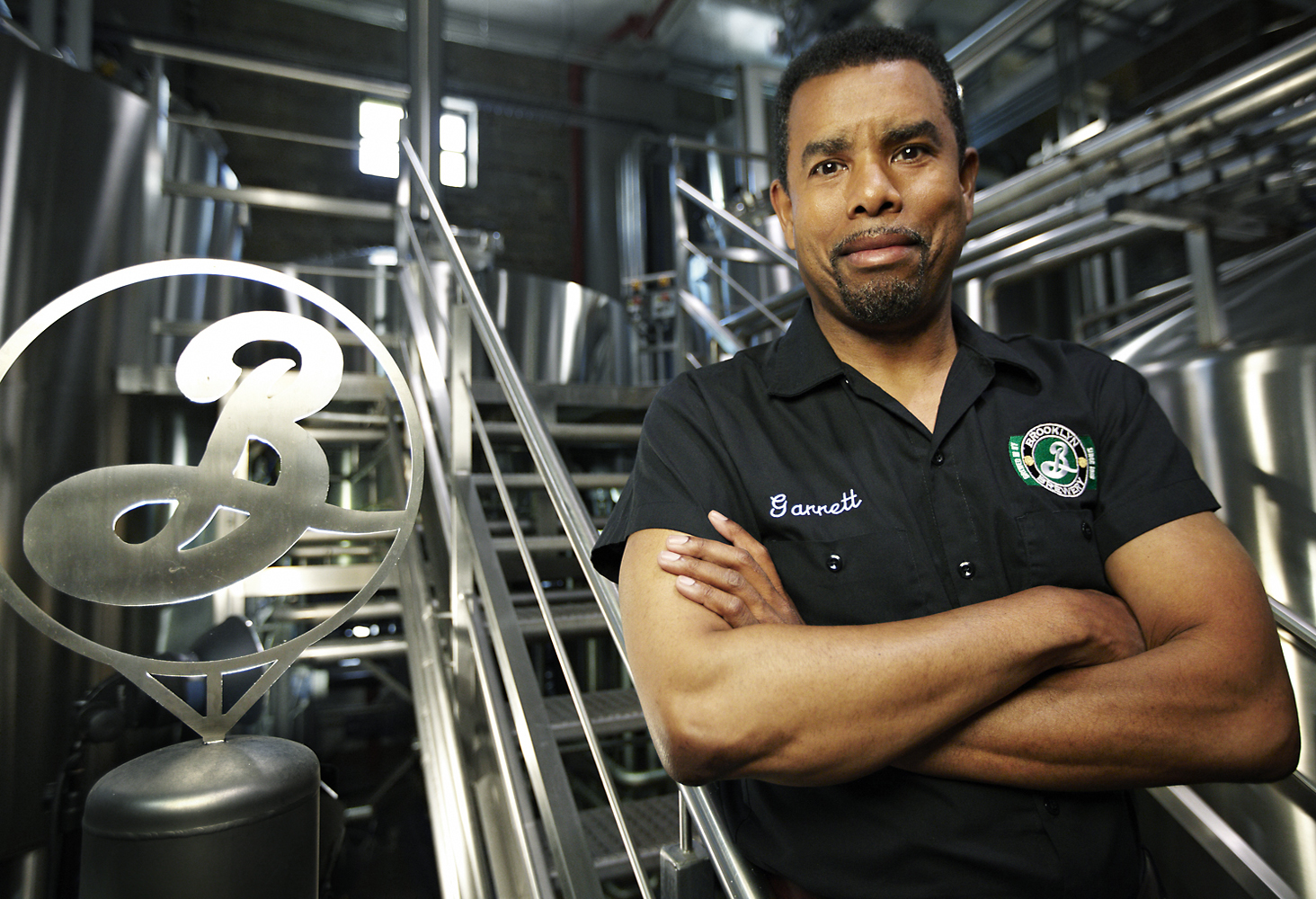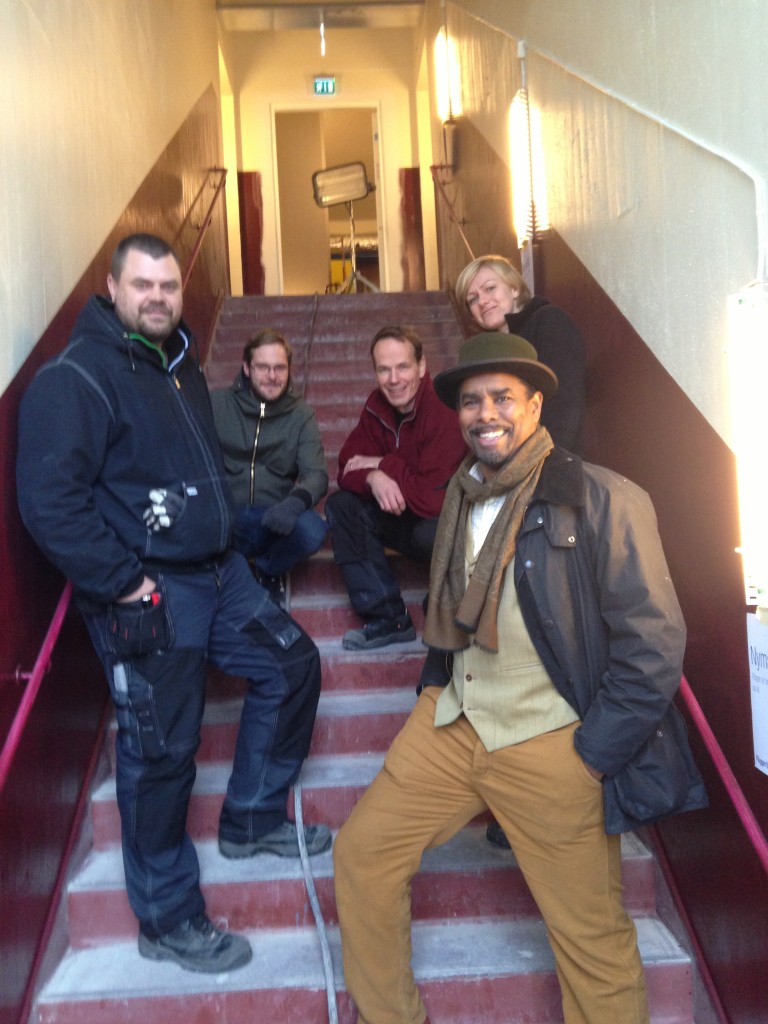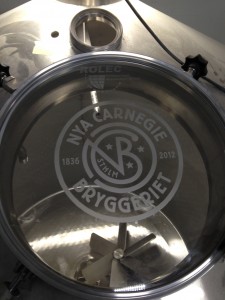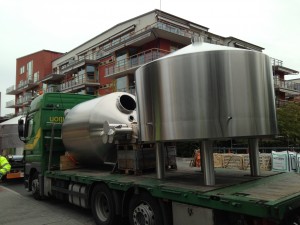
 As brewing in America entered its resurgence, brewers didn’t come from long lines of brewing families like many European brewers. Instead, the brewing fever caught many people by surprise and pulled them out of their self-designed career paths.
As brewing in America entered its resurgence, brewers didn’t come from long lines of brewing families like many European brewers. Instead, the brewing fever caught many people by surprise and pulled them out of their self-designed career paths.
That’s exactly what happened to Garrett Oliver, the brewmaster at The Brooklyn Brewery. “Being an American brewer is certainly a great thing to be these days,” said Oliver. “You talk to some German brewers who say ‘I’ve been working at this brewery for 30 years and we’ve never made a new recipe.’ Could you imagine a restaurant that had the same menu for 30 years? There are a few world classics that can get away with that … but, I don’t think anybody here is going to be interested in starting a brewing career if you’re just going to take over the beers that your predecessors brewed.”
This year marks Oliver’s 20th year at The Brooklyn Brewery. “Before that I was at a place called Manhattan Brewing Company, which was one of the very early brew pubs that opened in 1984,” he said. “I went to work for them in 1989 as an apprentice to the headbrewer there, who had been a senior brewer for Samuel Smith in England. I kind of learned the professional side of brewing while working at Manhattan Brewing Company. Eventually became the headbrewer there, and then after about a year and half as headbrewer I came over to Brooklyn Brewery in 1994.”
 However, even Oliver’s position at Manhattan Brewing Company wasn’t his first calling in life. “What really makes American craft brewer is that none of us actually intended to do this,” he explained. “We had other lives first. We were doctors, lawyers, architects, band managers, artists, etc. And then beer kind of took our lives over and kind of made us do this. That way it’s more like becoming a musician or something like that, than it is becoming an engineer. And that’s what craft brewing really is.
However, even Oliver’s position at Manhattan Brewing Company wasn’t his first calling in life. “What really makes American craft brewer is that none of us actually intended to do this,” he explained. “We had other lives first. We were doctors, lawyers, architects, band managers, artists, etc. And then beer kind of took our lives over and kind of made us do this. That way it’s more like becoming a musician or something like that, than it is becoming an engineer. And that’s what craft brewing really is.
“When you talk to a craft brewer there has always been somewhere there was a sacrifice, often a really big one. My degree was in broadcasting. I stage managed bands when I was living in England. I moved back and I started to work for HBO for years, both in original programming and then in marketing. What I intended to do was to end up directing films. My father was an art director; he made television commercials, so that was certainly in the DNA so to speak. But, I certainly didn’t intend to do this.”
In 1984 when Oliver moved back to the U.S. from living in Europe, the beer diversity wasn’t established. He said that it would be a treat to find a pub that would have Guinness or something along those lines. In order to achieve the same flavors that he’d enjoyed while living in Europe, he had to create his own beer.
“I got back to the United States and we had one kind of beer,” he said. “I simply couldn’t drink it anymore. I was completely spoiled, and people have a hard time believing that when I say there was no craft beer, I mean, there was no craft beer. Zero. Nothing. In order to have the kinds of beers I wanted to drink I had to make them, it was the only way to get any. So I started making beer over the holidays in 1984, not because I had any interest in making beer, I just wanted to have some beer. It was only through making beer at home that I fell in love in the process, the history and the creativity, and everything about it.”
Oliver believes that his story isn’t unique, but that the vast majority of brewers that entered the industry at its early resurgence in the 1980s and 1990s all started because they sought something else. “You’re going to hear the same story over and over again, in just different forms,” he said. “Many people these days might bypass the homebrewing stage, obviously people aren’t going into brewing because they can’t get the beer. There are thousands of beers to choose from. People now have a different motivation for getting into it.”
 Brewers today have many of the same characteristics as modern musicians, Oliver continued. He believes musicians don’t begin playing music because there isn’t any music, but because they have a calling to create their own style, their own flavor.
Brewers today have many of the same characteristics as modern musicians, Oliver continued. He believes musicians don’t begin playing music because there isn’t any music, but because they have a calling to create their own style, their own flavor.
At The Brooklyn Brewery Oliver and his team gets to share their brewing inspirations with whole world. “People are surprised that outside of New York City itself, Sweden is our number two market,” explained Oliver. Therefore, The Brooklyn Brewery, inspired by the time it has spent in Sweden, will be launching a second brewery in Stockholm, Sweden in March.
“It’s been quite a whirl wind around here the last 12 months, and it’s certainly not going to slow down,” he said. “[The brewery in Sweden] is something we’ve been working for about a year and a half now, and we’re only a week or two away from putting our first brews in.”
The brewery is a joint venture with Carlsberg, which is The Brooklyn Brewer’s Scandinavian importers, and members of the family that originally owned the Carnegie brand, that created the Carnegie Porter.
The opening of the Swedish brewery is simply an extension to The Brooklyn Brewery and Oliver’s passion for sharing beers with the world. Although his original path didn’t involve brewing, it was become a worldwide traveler that brought him into brewing, and now he uses his skills to continually give back to the countries that inspired him to brew.



Be the first to comment